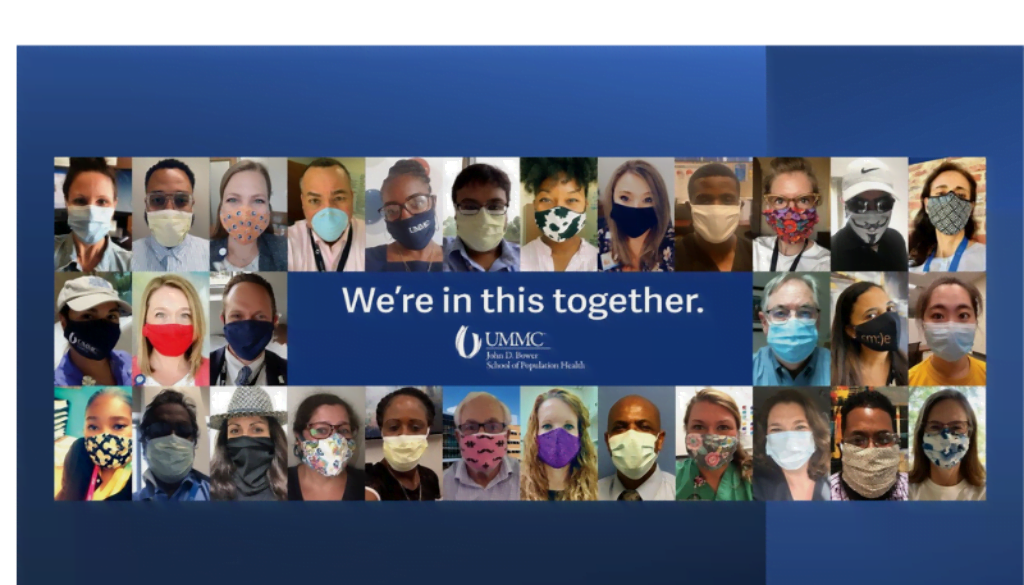Institutional Member Highlight: John D. Bower School of Population Health at the University of Mississippi Medical Center
Andrew Subica
The John D. Bower School of Population Health at the University of Mississippi Medical Center (UMMC) is the only school of its kind in the Southern United States. The school is named for Dr. John D. Bower, a pioneer in public health who received one of the first public health service grants to study dialysis and who made dialysis more accessible to many Americans by helping persuade Congress to pass Legislation H.R. 1—declaring persons with end-stage renal disease eligible for Medicare.
Following in this legacy, the Bower School of Population Health provides world-class graduate training to the next generation of scientists and healthcare professionals seeking to enhance the health of individuals, populations, and communities by improving health research, systems, and policies. Housed within the UMMC, the school offers multiple in-person and online certificate and degree programs for population health professionals and scientists.
Since its inception, the Bower School of Population Health has emerged as a growing leader in health equity research and training in the region. Students in the school enjoy numerous opportunities to expand their professional development by collaborating with, and training at, several UMMC centers dedicated to improving population health and reducing health disparities, including the Jackson Heart Study Graduate Training and Education Center and the Myrlie Evers-Williams Institute for the Elimination of Health Disparities. Students also have the option to participate in nationally recognized population health studies within the UMMC that are supported by the National Institutes of Health. These include the Jackson Heart Study (JHS)—the largest and longest-running longitudinal study of cardiovascular health in African Americans—and the Atherosclerosis Risk in Communities study (ARIC), which investigates the causes of atherosclerosis and its clinical outcomes by race, gender, and location.
Degree Programs: The school houses several degree programs dedicated to training population health scientists and practitioners:
- Biostatistics and Data Science: Master of Science (MS) and Doctor of Philosophy (PhD)
- Focused on population heath using statistical theory, effective communication skills, and epidemiology
- Population Health Science: Master of Science (MS), Doctor of Philosophy (PhD)
- Focused on examining health determinants and outcomes using a population health framework to develop population health policies and interventions.
The MS is an online, two-year program.
- Focused on examining health determinants and outcomes using a population health framework to develop population health policies and interventions.
- Population Health Science: Executive Master of Science (MS)
- An online, twelve-month executive program for experienced health care professionals with five years of practice experience interested in creating sustainable models for value-based and accountable care.
Students in these programs have ample opportunities to gain real-world research experience by working with high-quality data and reputable researchers. Through these experiences, students are empowered to contribute to and to generate their own impactful scholarship to improve population health and reduce health disparities.
Certificate Programs: The school also offers two cost-effective online certificate programs that offer distance learners the opportunity to develop leadership roles in health care, gain skills in research design, and understand the determinants of health:
- Post-Baccalaureate Certificate Program in Analytics
- Post-Baccalaureate Certificate Program in Population Health Sciences
Fellowships and Collaborations: The school provides multiple opportunities to employ data to impact health outcomes through collaborations and fellowships.
- Health Policy Fellowship: This fellowship is designed to train students, residents, and faculty in the school about health care policy and the legislative process to utilize this knowledge in future scholarship and practice to positively impact the health of populations.
- Jackson Heart Study Graduate Training and Education Center
- Myrlie Evers-Williams Institute for the Elimination of Health Disparities
Natalie W. Gaughf, Ph.D., ABPP, is Interim Dean of the John D. Bower School of Population Health, Associate Dean for Student Affairs, and Acting Executive Director of the Myrlie Evers-Williams Institute for the Elimination of Health Disparities. Learn more about the school on their website.






All comments will be reviewed and posted if substantive and of general interest to IAPHS readers.